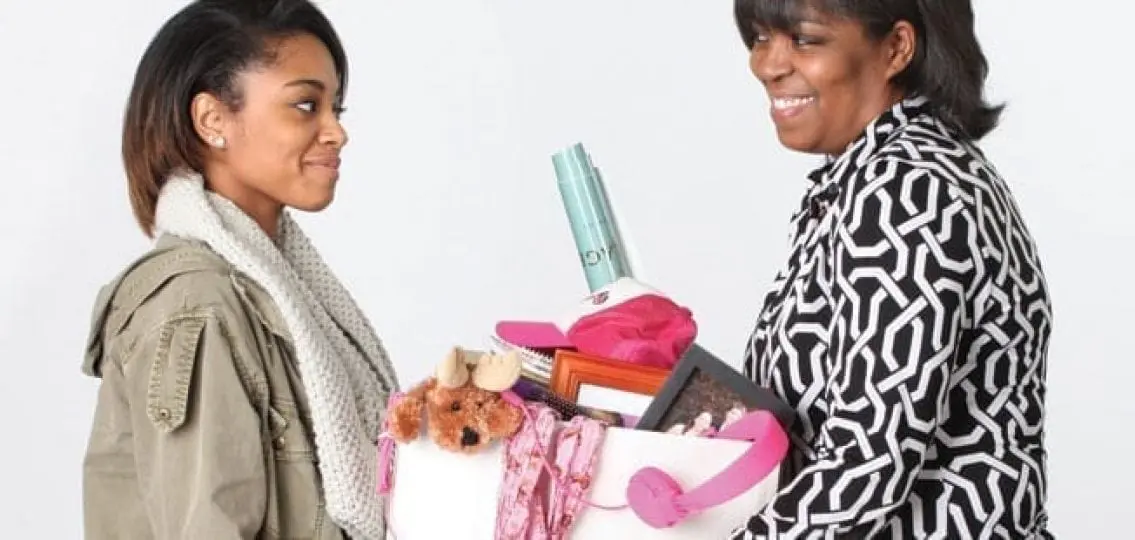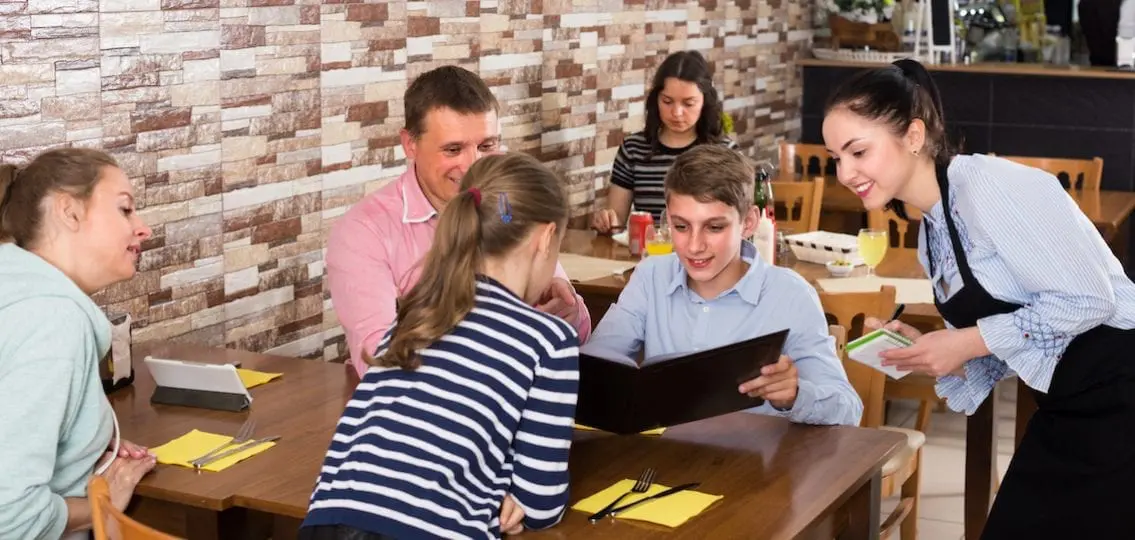Two situations taught me how important it is to begin to foster some independence in my children as soon as they’re capable of taking on age-appropriate tasks and learning essential life skills that prepare them for adulthood.

When They Don’t Know – or Don’t Want To
The first happened during my bridal shower. It was hosted by one of my bridesmaids at her parents’ home, where she lived while finishing college. When some fancy linens were dirtied, my 21-year-old friend didn’t know how to use the washing machine and had to ask for help. At the time, it struck me as a disservice to both her and her parents that in adulthood she still lacked laundry know-how.
The second situation presented years later. When my family would dine out, our young son—though old enough to place his own order—adamantly refused to speak up and order for himself. He was a gregarious kid and more than capable of asking for, “Chicken strips and milk, please.” He just wouldn’t. He was too shy and stubborn, trusting that his parents would indulge him.
My husband and I pressed this issue with him, explaining if he wanted to eat, he’d need to place his own order. The kid’s will was stronger than his hunger and he went without eating more than once. The first time he found the courage to order for himself, the rest of our family had finished eating. Over time, he progressed and confidently placed his order right along with the rest of us.
These stories served as scaffolding for constructing a portion of my parenting philosophy.
Parenting Toward Interdependence
I wanted my kids to be up and running on their own, with confidence and loads of know-how under their belts before they left home. I wasn’t striving for total independence for them, but rather a broad set of life skills, a willingness to learn how to do hard things, and a growth mindset.
Said another way, I wanted to prepare them for adulthood. For I’m pretty certain not one of us is meant to function in this world solely on our own, as an island. But rather autonomously and with aid, in community.
Owing to my college friend’s lack of laundry skills, I taught my kids how to wash, dry, fold, and put away their own clothes while they were still of single-digit ages. Neither child did their laundry the way I do it or without me pestering them to get it done. And I still pitched in quite a bit over the years, but they know how to ensure they have clean clothes to wear.
When I’d realize my kids could manage a task on their own, but they just didn’t want to, I went the way of “do it yourself or go without” until they were no longer intimidated by the task at hand.
They went without plenty. And sometimes I called their bluff, caved in, and ended up doing something for them when at first I’d declined. Through it all, I tried to find a happy medium between mothering them and attending to their needs and encouraging them to fend for themselves.
Preparing for Adulthood
Beginning around their sophomore or junior years in high school, I started to pass them the baton for higher-level important life skills I knew they’d need experience with before they left home. Were they ever resistant to taking on new responsibilities? You bet they were. But I was resistant to their resistance, in the name of increasing their autonomy.
I asked my teens to save half their income from their after-school jobs. Both grumbled at this imposition initially, until their dad and I explained their compliance would make them eligible for a 401(k) savings plan. We matched the amount they saved each month with the agreement their savings accounts could only be used to fund their first car purchase and/or their college expenses. We were trying to model frugality, living beneath your means, budgeting, and delayed gratification with these tactics.
I sent my kids off in their cars on their own to get the oil changed or have the tires rotated so they could learn to work with mechanics to keep their vehicles running smoothly. I bought TurboTax and had them use the program to learn to file their own taxes, while I sat at their elbow, ready to provide assistance and answer questions.
I sent my teens to routine healthcare appointments on their own—prompting them to learn to navigate our town, show up on time, and check in at a medical office. They also learned how to provide insurance information, fill out paperwork pertaining to their health history, converse with medical professionals, and begin to advocate for and take charge of their own health.
My teens grocery shopped for the family and took the family dog to the groomer. They house and pet-sat so as to get used to spending time alone and learn how to be responsible for another living thing. They spoke with their coaches and teachers on their own to work out issues or concerns. All while their dad and I were still close enough in proximity to step in and assist or guide, if needed.
Keeping the Goal in Mind
There were times when I’d attempt to shift responsibility over to my kids and they would look at me with disdain.
They’d say things like, “Why can’t you just do what moms are supposed to do?” Those were tough moments to navigate, because I believed I was doing exactly what parents are supposed to do. Even so, there’s some heavy soul-searching to be done when your kids make it clear they don’t think you’re doing a good job as a parent.
Undaunted, even whilst not unscathed, any chore or task I could identify as important for my teens to learn, or that prompted fear, I had them try it on their own while they still lived at home so I could readily offer support. It was trapeze training with a safety net. As I told them I knew from experience that lack of knowledge or familiarity with a task can paralyze us against taking action in our lives.
Accordingly, I wanted to instill as much pre-loaded know-how in my near-adult kids as possible before they left home to live on their own.
As a result, my kids know how capable they are of doing new and somewhat scary things on their own and how available I am for answering questions or providing helpful suggestions, should they need me. I didn’t want them to never need their dad and me again once they left—I wanted them to know we’re here to assist and collaborate if need be. But because of their proven capabilities, they likely won’t need us much.

Because they know they can, my teens still come to me tossing around abstracts—like mortgages and how to get a good interest rate—along with tangibles, like how to write a good cover letter or how to obtain renter’s insurance. My teenagers still get the deer in the headlights look that adulting can produce, as do I, but they also have the confidence to dig in and try to muddle through a foreign task with the surety they can come to me for guidance if they need it. That’s what interdependence is all about. And it has led to a strong sense of accomplishment for my kids and a deep sense of peace for me.




